By DLLC – Law Firm in Singapore
Disputes in commercial leasing can disrupt businesses significantly. Navigating these conflicts requires a thorough understanding of relevant laws and effective resolution strategies. This article delves into common causes of commercial lease disputes in Singapore, explores the legal framework, and highlights the role of litigators in resolving these conflicts.
Common Causes of Commercial Lease Disputes
- Rent Issues: Rent disputes often arise due to disagreements over rent increases, late payments, or rent holidays. In Singapore, the COVID-19 (Temporary Measures) Act provided temporary relief for tenants unable to pay rent due to pandemic-related hardships, but this also led to numerous disputes as businesses struggled to interpret and apply these measures.
- Maintenance Responsibilities: Disputes can occur over who is responsible for repairs and maintenance. Clear terms in the lease agreement can prevent misunderstandings, but ambiguities often lead to conflicts. For instance, landlords may argue that tenants should cover maintenance costs for wear and tear, while tenants may believe that structural repairs are the landlord’s responsibility.
- Lease Terminations: Issues surrounding the termination of leases, whether early or at the end of the term, can lead to disputes. Reasons for early termination might include breach of lease terms, tenant insolvency, or mutual agreement. Disputes often center around the validity of the termination notice and any associated penalties.
Legal Framework
In Singapore, several laws govern commercial leases:
- Lease Agreement for Retail Premises Act 2023 (LARP Act): Approved on August 3, 2023, this act incorporates guidelines from the Fair Tenancy Pro Tem Committee, establishing a process for the resolution of disputes and enforcement for non-compliance. The LARP Act, created the Fair Tenancy Industry Committee, establishing conditions for leasing retail premises, resolving related disputes, and addressing associated issues has been effective since February 1, 2024.
- Code of Conduct for Retail Agreements: This code aims to create a level playing field between landlords and tenants in the negotiation of retail leases, promoting fair and transparent negotiations.
Litigation vs. Alternative Dispute Resolution (ADR)
When disputes arise, parties can choose between litigation and alternative dispute resolution (ADR) methods like mediation and arbitration.
Litigation:
- Pros: Provides a legally binding resolution, can set legal precedents, and may be necessary for complex cases.
- Cons: Often costly and time-consuming, with lengthy court processes.
ADR:
- Pros: Generally faster and less expensive, promotes amicable settlements and maintains confidentiality.
- Cons: May not be legally binding unless formalized in a court order, and parties might still end up in court if ADR fails.
Real-Life Cases and Handling Disputes
A real-life case illustrating the complexities of commercial lease disputes involves a dispute between a retail tenant and a property owner over maintenance responsibilities. The tenant claimed that the landlord was responsible for structural repairs, while the landlord insisted that these costs fell on the tenant due to wear and tear.
Under the LARP Act, both parties were required to adhere to the leasing principles outlined in the Code of Conduct. This case was brought to mediation, as mandated by the Act, which emphasizes alternative dispute resolution before resorting to litigation.
During mediation, it was highlighted that the lease agreement did not comply with the Code’s requirement for a clear allocation of maintenance responsibilities. The mediator guided both parties to renegotiate these terms transparently and fairly, in line with the Code’s principles of open and honest negotiations. As a result, the landlord agreed to take responsibility for structural repairs, while the tenant would handle minor maintenance and wear and tear.
This resolution not only complied with the LARP Act but also reinforced the importance of clear contractual terms. The mediation process, supported by the litigators saved both parties significant time and legal expenses and preserved their business relationship by fostering a cooperative approach.
Preventing Conflicts
To minimize disputes, landlords and tenants should:
- Draft Clear Contracts: Clearly outline all terms, including rent, maintenance responsibilities, and termination conditions.
- Maintain Good Communication: Regularly discuss any issues or changes that may affect the lease, ensuring both parties are on the same page.
- Seek Legal Advice: Consult with legal professionals to review lease agreements and understand the implications of any changes or disputes.
Role of Litigators
Litigators play a crucial role in guiding clients through dispute resolution. Litigators help clients understand their legal rights and obligations, negotiate settlements, and represent them in court if necessary. Litigators ensure that clients receive fair treatment and that disputes are resolved efficiently and effectively.
In conclusion, commercial lease disputes in Singapore can arise from various issues, including rent, maintenance, and lease terminations. Understanding the legal framework and considering both litigation and ADR options can help resolve these conflicts. Clear contracts, good communication, and professional legal advice are key to preventing disputes, and litigators are essential in navigating the resolution process.
At DL Law Corporation, our experienced litigators are dedicated to helping you understand your legal rights, negotiate fair settlements, and represent you in court if necessary. We prioritize efficient and effective dispute resolution to save you time and costs while maintaining crucial business relationships. Contact DL Law Corporation today to schedule a consultation with our expert litigators. Let us help you find the best path forward!







